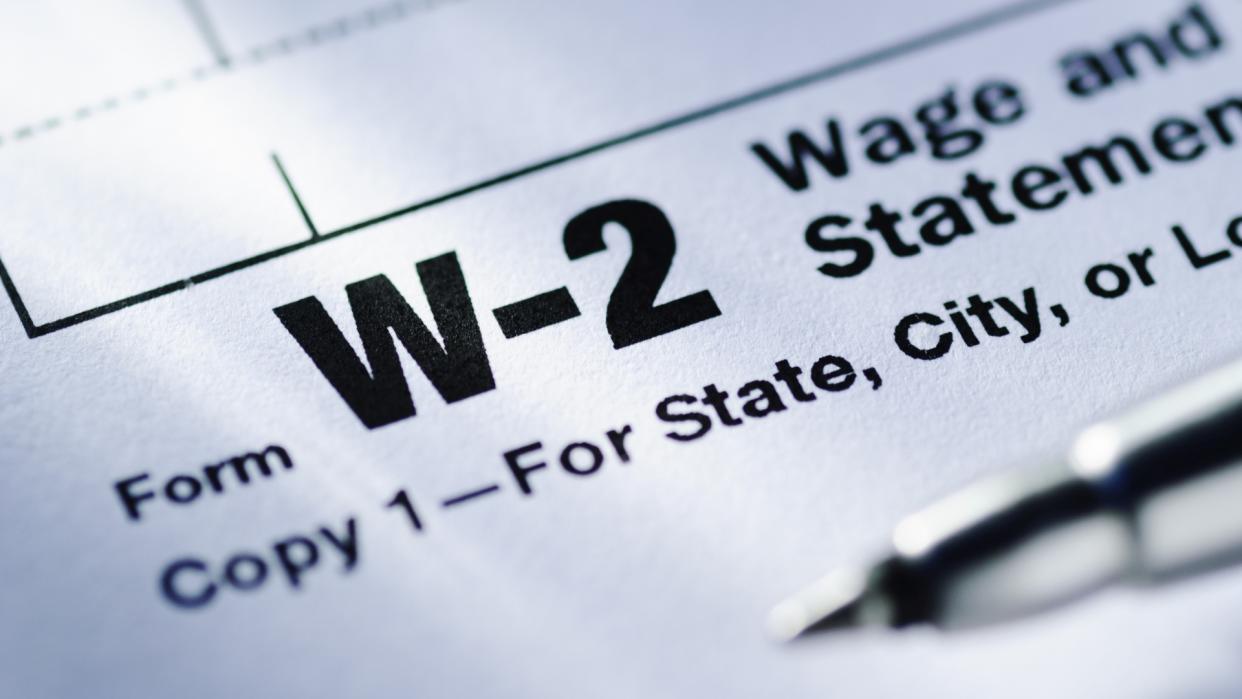New Tax Scam on Social Media Could Cost You $5,000

The IRS has issued a warning about a new scam in which taxpayers are urged to claim false credits on their tax returns to get a big refund. If you get lured into the scam, you might be stuck with a $5,000 penalty.
Do You Have a Money Question? Ask an Expert
Find: 3 Signs You’re Serious About Raising Your Credit Score
The warning, issued on March 3, centers on a scam currently circulating on social media that encourages people to use tax software to manually fill out Form W-2 and include false income information. In this scheme, scam artists tell taxpayers to make up large income and withholding figures and also invent the employer issuing the W-2.
Fraudsters then instruct taxpayers to file the bogus tax return electronically in the hopes of getting a big refund due to the large amount of withholding. Some have been promised refunds as high as five figures.
“We are seeing signs this scam is increasing, and we worry that innocent taxpayers could be at risk of being tempted into falling into a trap that puts them at risk of financial and criminal penalties,” acting IRS commissioner Doug O’Donnell said in a statement. “The IRS and Security Summit partners remind people there is no secret way to get free money or a big refund. People should not make up income and try to submit a fraudulent tax return in hopes of getting a huge refund.”
The IRS also reminded taxpayers who try the scam that they’ll face a wide range of penalties — including a frivolous return penalty of $5,000. Filers also run the risk of criminal prosecution for filing a false tax return.
Two variations of this scheme have also been spotted by the IRS. Both involve misusing Form W-2 wage information in hopes of generating a larger refund. Here’s how they work:
One variation involves people using Form 7202 (Credits for Sick Leave and Family Leave for Certain Self-Employed Individuals) to claim a credit based on income earned as an employee and not as a self-employed individual. These credits were available for self-employed individuals for 2020 and 2021 during the pandemic, but they are not available for 2022 tax returns.
A similar variation involves people making up fictional employees employed in their household and using Schedule H (Form 1040, Household Employment Taxes) to try claiming a refund based on false sick and family wages they never paid. The form is designed to report household employment taxes if a taxpayer hired someone to do household work and those wages were subject to Social Security, Medicare or FUTA taxes, or if the employer withheld federal income tax from those wages.
Take Our Poll: What Do You Plan To Use Your Tax Refund For?
More: Fraud Reports Dropped Last Year, but Losses Nearly Doubled — How Americans Can Prevent Being Scammed
If you participated in one of these scams, your options include amending a previous tax return or consulting with a tax professional.
More From GOBankingRates
This article originally appeared on GOBankingRates.com: New Tax Scam on Social Media Could Cost You $5,000


